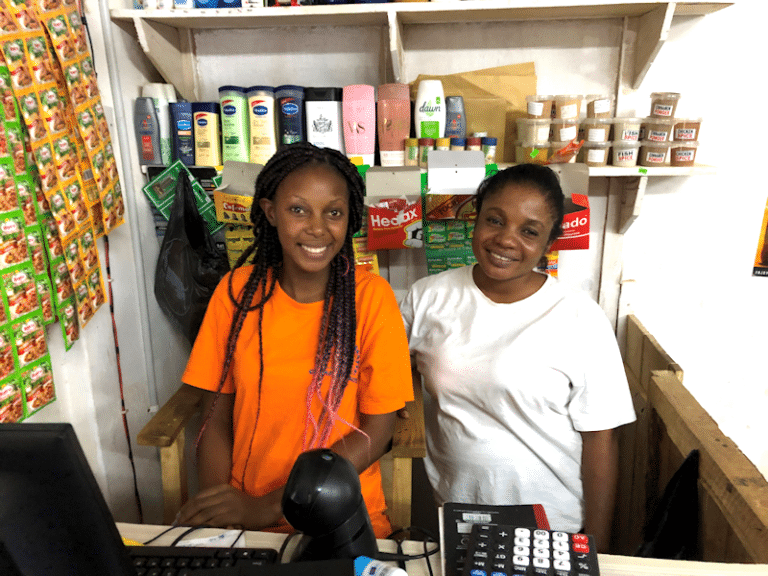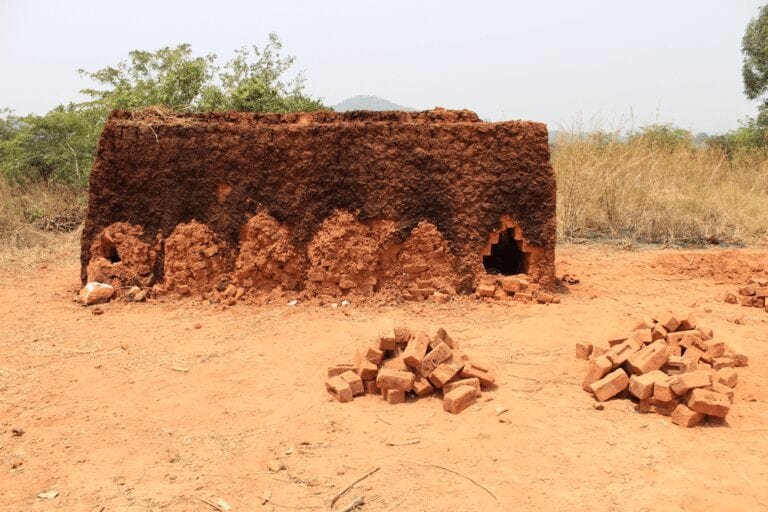
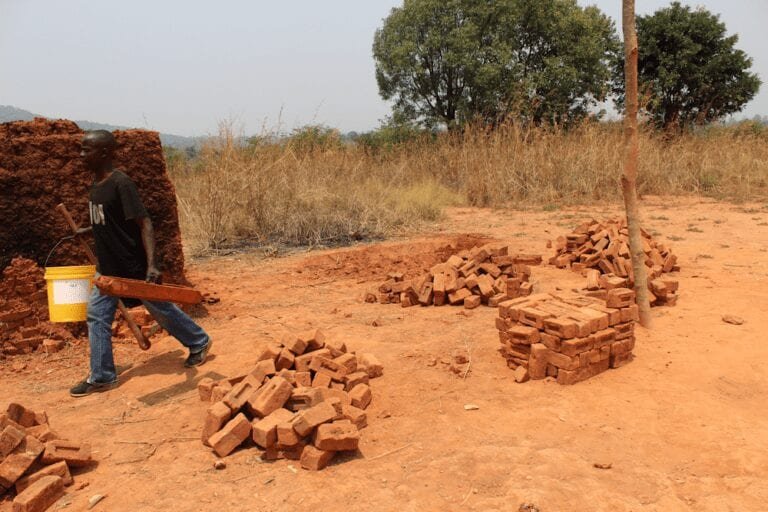
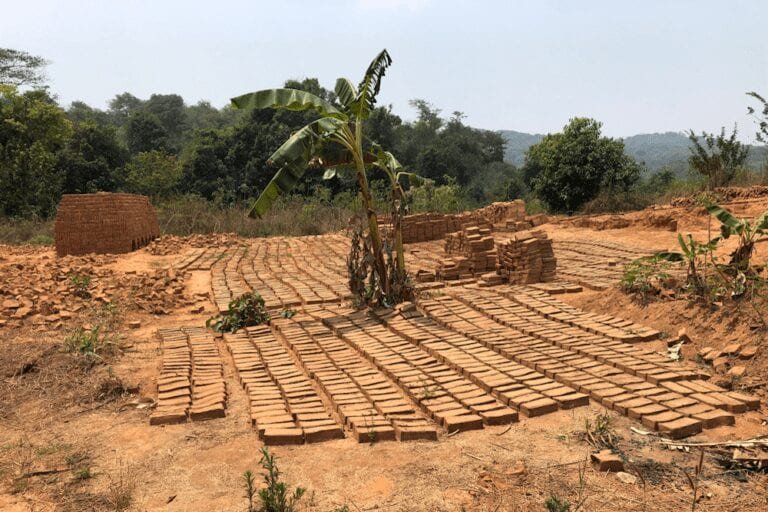
Making and drying bricks for a community building in Gulumu,
one of the remoter villages
A 2016 survey (available here) showed that almost 80% of people in Malenga Mzoma lived on little more than 50p a day. This is absolute poverty, where income is so low that basic needs can’t be met and where one in eight people eat only once a day.
Highly-developed economies are able to afford services and infrastructure because they have significant tax revenue and they are able to borrow on international money markets at favourable rates.
Neither of these options are available to Malawi.
For decades the hope has been that funding development would raise everyone out of poverty. Alas, this approach doesn’t reach the bulk of the population directly.
International aid might help prop up the education system, while capital projects such as upgrading the road to Mzuzu (one of Malawi’s ‘big four’ cities and the nearest to Malenga Mzoma) have communications benefits, but such programmes don’t give impoverished local families a living.
The funding ticks gross domestic product (GDP) up a notch, but it doesn’t directly help people at the grassroots.
The Capacity Foundation’s solutions are to develop the local economy so that more people are earning, to found social enterprises that substitute for tax revenue, and to provide skills that enable people to make a living.
All of these objectives were identified by the community during discussion is 2015-16 and were fleshed out by the baseline survey in 2016.
The loans programme injects investment by enabling people to start or grow a business. As the size of the loans increases, more people can take part and the greater economic activity circulates more cash locally, providing more purchasing power.
A Capacity Foundation survey found that, of the people in Malenga Mzoma who are in business …
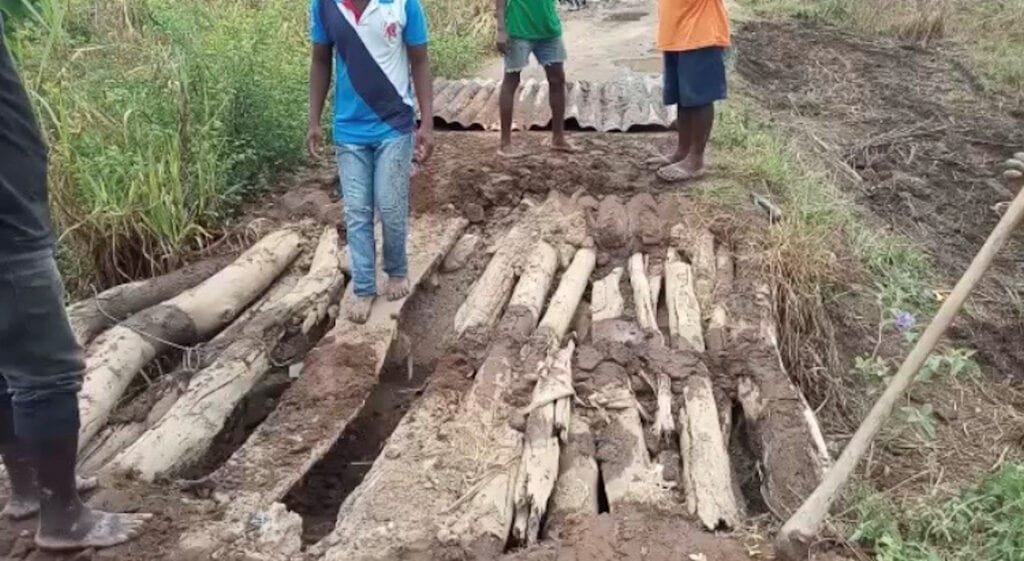
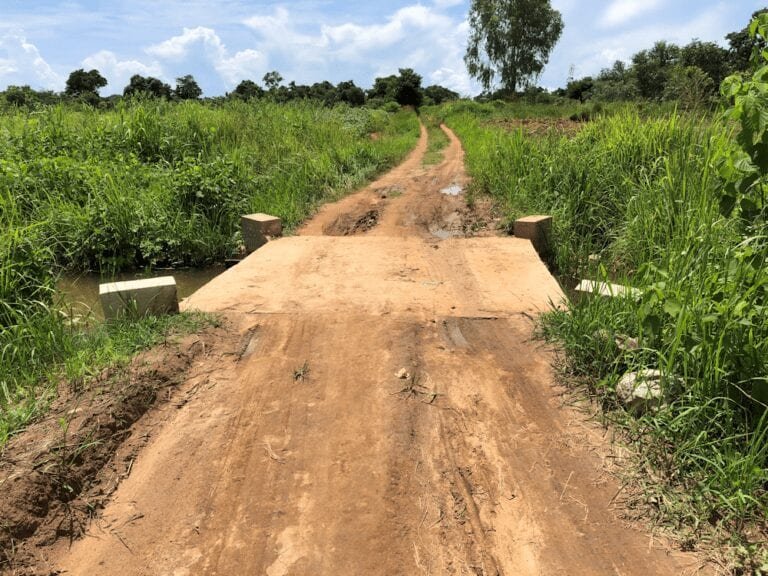
Because the loan system channels some money into the Social Action Fund (a type of community chest) it becomes possible to invest in local projects.
This type of highly focussed approach, attuned to very local needs, is not possible under conventional international aid paradigms.
The first projects that people in Malenga Mzoma decided to pay for from the Social Action Fund were four bridges and culverts that had been damaged by flooding or had fallen into disrepair.
(Photos show the Seventh Day road bridge before and after being repaired.)
The power to do this derived directly from the surplus funds generated by the Foundation’s business microloans programme. Neither the Malawi Government nor NGOs had the resources to make the repairs.
The Chanju supermarket (called a superette in Malawi), wholly owned and run by the Foundation, sells groceries and household goods from its premises in Chintheche across the road from our office. Currently it is contributing about £14,500 a year directly to the Foundation’s costs in Malawi – over a quarter of Capacity’s annual needs.
This successful social enterprise employs seven people, providing them with purchasing power they spend locally; and it purchases stock from wholesalers, adding to the growth of the economy.
